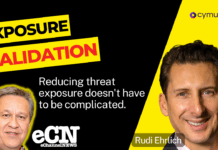Another interesting research from NordVPN, They said that the world’s online privacy and cybersecurity awareness is declining. This year the US performed second together with Germany.
However, Canadians lack an understanding of safe remote work practices and recognizing phishing sites.
The annual National Privacy Test (NPT) gathered answers from 26,174 respondents (in 175 countries) this year.
In the questionnaire, one section contained questions about remote work.
Research shows that, when traveling remotely, 95% do not feel that compromised IoT devices can be a threat, 81% of employees would charge their device on a public charging station if the personal charger is lost, 79% might mix personal and work devices, and almost a third of Canadians (27%) do not worry about unsafe public/private networks when working remotely.
Carlos Salas, head of platform engineering at NordLayer, explains why IoT is a bigger threat than it seems: “When IoT devices are compromised, they can become entry points into the network. Remote workers often connect their devices to the same home network as their IoT devices, potentially providing attackers with a pathway to access the work devices and sensitive data of.”
Good practices among Canadians
Canadian participants understand the risks of using similar passwords for several accounts, 83% confirmed that. More than three-fourths of people in Canada understand how a device gets infected with malware. Also, compared to last year, more Canadians know the security benefits of reading the terms of service of apps and online services. Last year, 18% read these terms, compared to 27% this year.
“Even though the results show that Canadians know how to create strong passwords, NordPass’ research showed that ‘guest,’ ‘123456,’ and ‘password’ are still the most popular passwords in Canada. Additionally, many employees do not follow safe password securing practices, leaving their passwords written on sticky notes, notebooks, or using the same ones for various platforms,” says Salas from NordLayer.
In comparison with other countries
The United States outperformed Canada in the National Privacy Test. In every category of the test — digital habits (48 vs. 45 points), awareness of online privacy (74 vs. 69 points), and digital danger (85 vs. 82 points) – US respondents did better than Canadians. However, Canadian participants are second best after Singaporeans and the best among English-speaking countries by daily digital life score.
What to do in times when cybersecurity awareness is declining
Salas shares his main tips when it comes to business cyber resilience:
“Employees should change default passwords on IoT devices and use strong, unique passwords. Make sure always to use two-factor authentication. Regularly update devices and applications to ensure the latest security patches are applied. Lastly, keeping personal and work devices separate is crucial, using dedicated devices for work whenever possible.”
He adds one last and most important tip: “According to the test, 70% of Canadians don’t know how to recognise a phishing site. This is worrisome because phishing attacks are the most popular cyberattacks out there. Make sure to educate yourself and your employees. It is much cheaper to stay informed about the possible dangers than trying to rebuild the company and its trust. ”
Source: NordVPN















